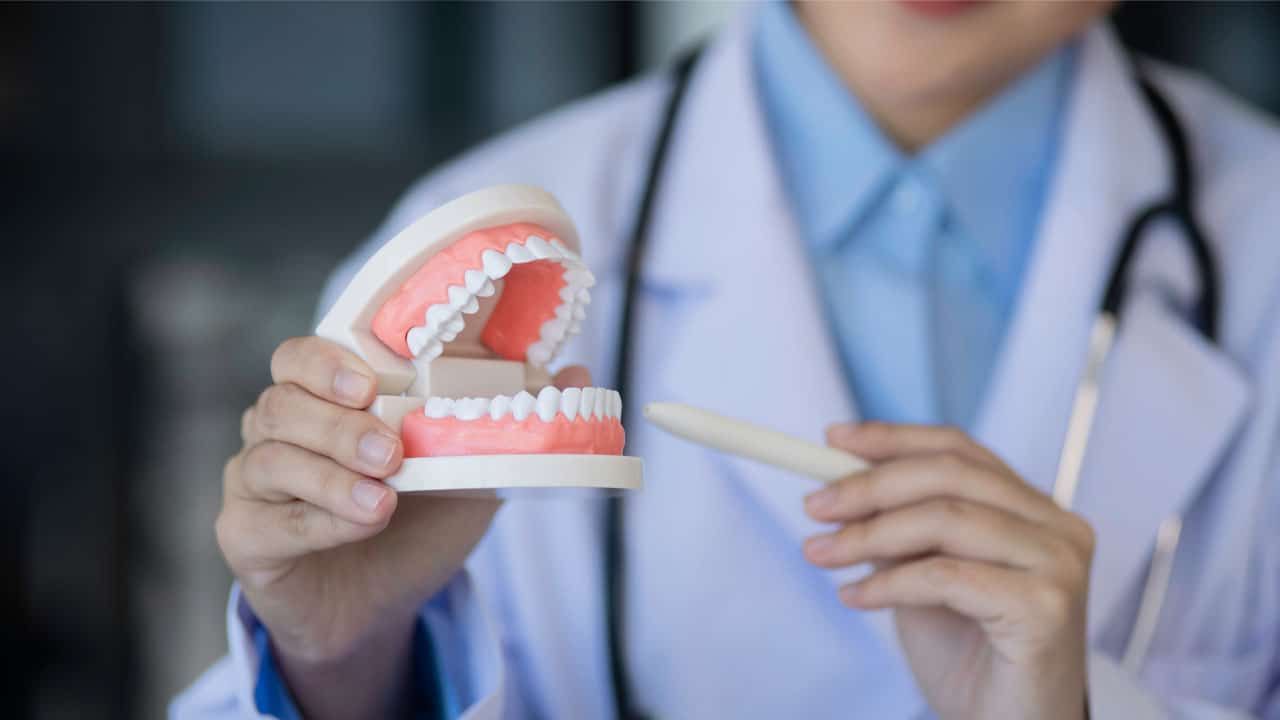What Are Implant-Supported Dentures and Their Benefits?

Implant-supported dentures, often called overdentures, are a form of dental prosthetic that, unlike traditional dentures, are anchored by dental implants. These implants, made from biocompatible titanium, are surgically inserted into the jawbone, creating a durable, reliable base for the dentures to be attached.
This innovative solution is designed for patients who have lost all or most of their teeth but still have enough bone structure in their jaw to support dental implants.
Implant-retained dentures are typically removable. These dentures are connected to the dental implants via a snap-on or ball-in-socket mechanism, allowing them to be removed daily for cleaning and while sleeping. However, the design can vary, and some types may be designed to be removed by dental professionals only.
The Implant-Supported Dentures Process
The process begins with the surgical placement of dental implants into the jawbone. The implant acts as a substitute for a tooth root and serves as the foundation for the denture. Once implanted, these posts fuse with the surrounding bone through a process called osseointegration, creating a secure bond.
An abutment is attached to the implant after the healing and osseointegration period, which may take several weeks to months. The denture, fitted with corresponding connectors, is attached to these abutments.
Implant-supported dentures can be either bar-retained or ball-retained. Both designs offer a stable, secure, and robust attachment system, improving your ability to chew and speak compared to traditional dentures.
Benefits of Implant-Supported Dentures
Implant-supported dentures have revolutionized restorative dentistry and prosthetics, enabling patients to achieve a realistic-looking smile that functions like their natural teeth. There are several benefits of implant-supported dentures, including:
- Improved stability and comfort: Implant-supported dentures are more stable than traditional ones, reducing the chances of the dentures slipping or moving in the mouth. This eliminates the discomfort and sore spots caused by shifting dentures and improves your confidence when talking or eating.
- Improved oral health: By replacing missing teeth, implant-supported dentures help maintain the structure and health of the remaining bone and soft tissue, reducing the risk of further tooth loss. Unlike dental bridges, they don’t require altering the structure of adjacent healthy teeth, preserving the natural tooth structure.
- Enhanced eating and speaking ability: Traditional dentures can make it difficult to eat certain foods and can interfere with speech. Implant-supported dentures function more like natural teeth, improving your ability to eat a wider variety of foods and speak more clearly.
- Preservation of facial structure: Over time, missing teeth can cause bone resorption, changing your facial structure and often leading to a sunken appearance. Implant-supported dentures provide the stimulation needed to maintain a healthy jawbone, helping preserve your facial structure.
- Durability and longevity: Titanium dental implants are known for their durability and can last a lifetime with proper care. This makes implant-supported dentures a cost-effective long-term solution to missing teeth.
- Improved quality of life and self-esteem: With a secure fit, natural look, and improved functionality, implant-supported dentures can enhance your quality of life and self-esteem.
Not everyone is a suitable candidate for implant-supported dentures. Adequate bone density is required for the successful placement of dental implants, and some medical conditions, such as poorly controlled diabetes or those who’ve had radiation treatment for cancer, may affect the procedure’s success. A thorough examination and consultation with a dental professional are necessary to determine individual suitability.
Ready to Improve Your Smile?
If you are tired of dentures that slip when you eat, laugh, or speak and want to enjoy your favorite foods again, contact our practice to arrange a dental implant consultation.
During your consultation, we will evaluate your dental and medical history to ensure you are a candidate for the procedure and go over what the surgery entails so you can make an informed decision about your oral health.
Return to Blog